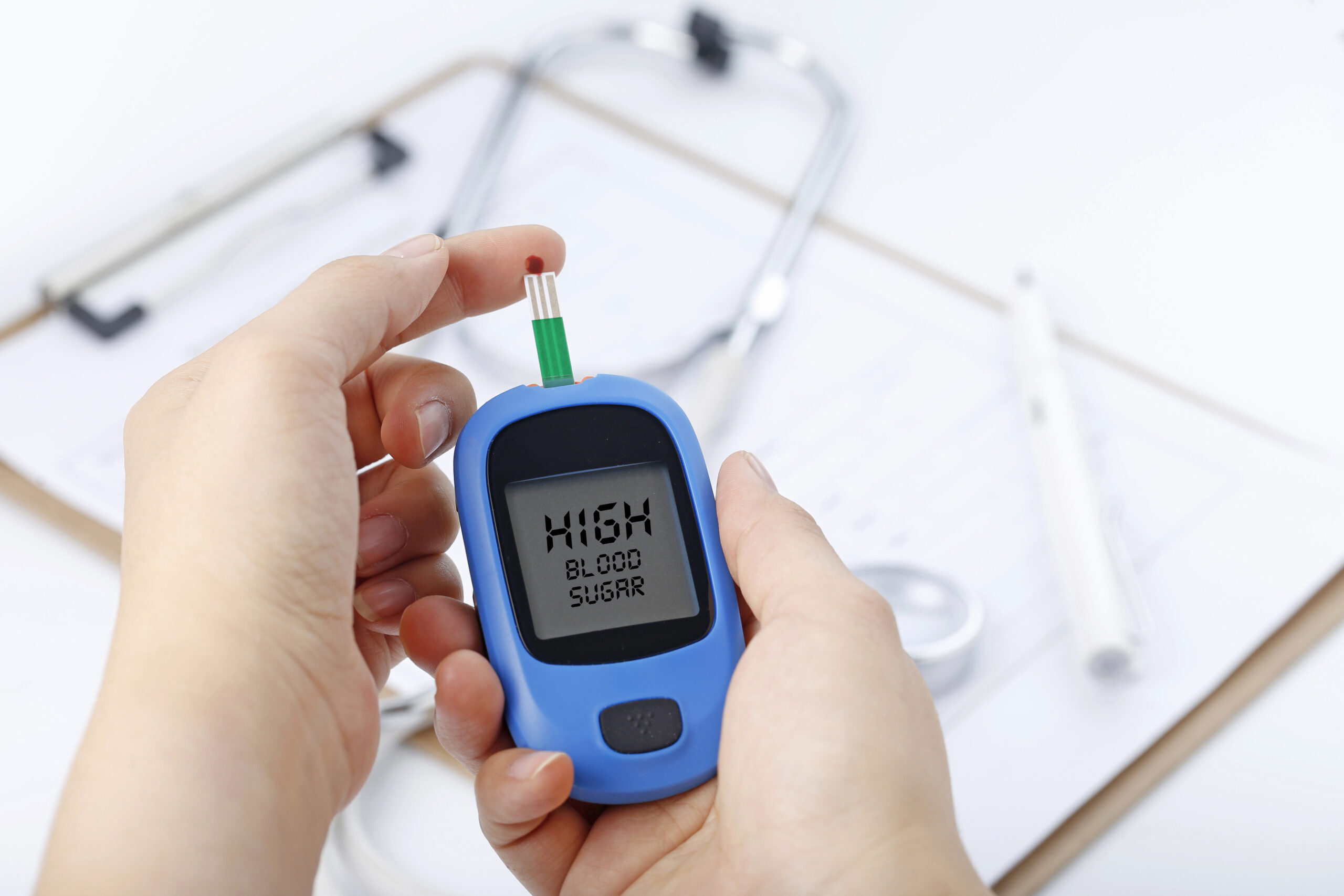Non-ketosis Hyperosmolar Syndrome (NKHS)
This acid-base imbalance also occurs in diabetic patients, but in those who are not dependent on insulin, i.e., type 2 diabetics. These patients do not have ketoacidosis as the available insulin inhibits lipid breakdown, and so ketones are not produced. The insulin, however, is not enough to manage hyperglycemia.

Non-ketosis hyperosmolar syndrome (NKHS) is characterized by an extremely high blood glucose level.
Etiologies of Non-ketosis Hyperosmolar Syndrome
The same instigators of DKA (infection, stroke, acute MI, etc.) are likely to cause NKHS. A common scenario is missing oral hypoglycemics. Patients are usually profoundly ill.
Diagnosing Non-ketosis Hyperosmolar Syndrome
A low threshold for suspicion is indicated in type 2 diabetics who appear ill. Patients will be dehydrated and obtunded or nonresponsive. Patients are often elderly. Laboratory findings include
- Hyperosmolality: >320 mOsm/L
- Hyperglycemia: >600 mg/dL
- Acidosis is absent
- Ketones are absent
Treating Non-ketosis Hyperosmolar Syndrome
The treatment is similar to DKA with IV saline, replenishing potassium, and management of hyperglycemia using insulin. It is important to monitor pH and electrolyte and patient response to therapy.
NKHS associated arrest
Patients are acutely ill and need rapid evaluation and treatment. In patients nearing arrest, treatment will be intravascular fluid replacement and pressor support as needed. As there is no acidosis, there is typically no associated potassium shifts and less risk for cardiac arrhythmias. Patients are at risk for cerebral edema, although this is less common than in DKA. Pediatric patients are at increased risk for this complication.